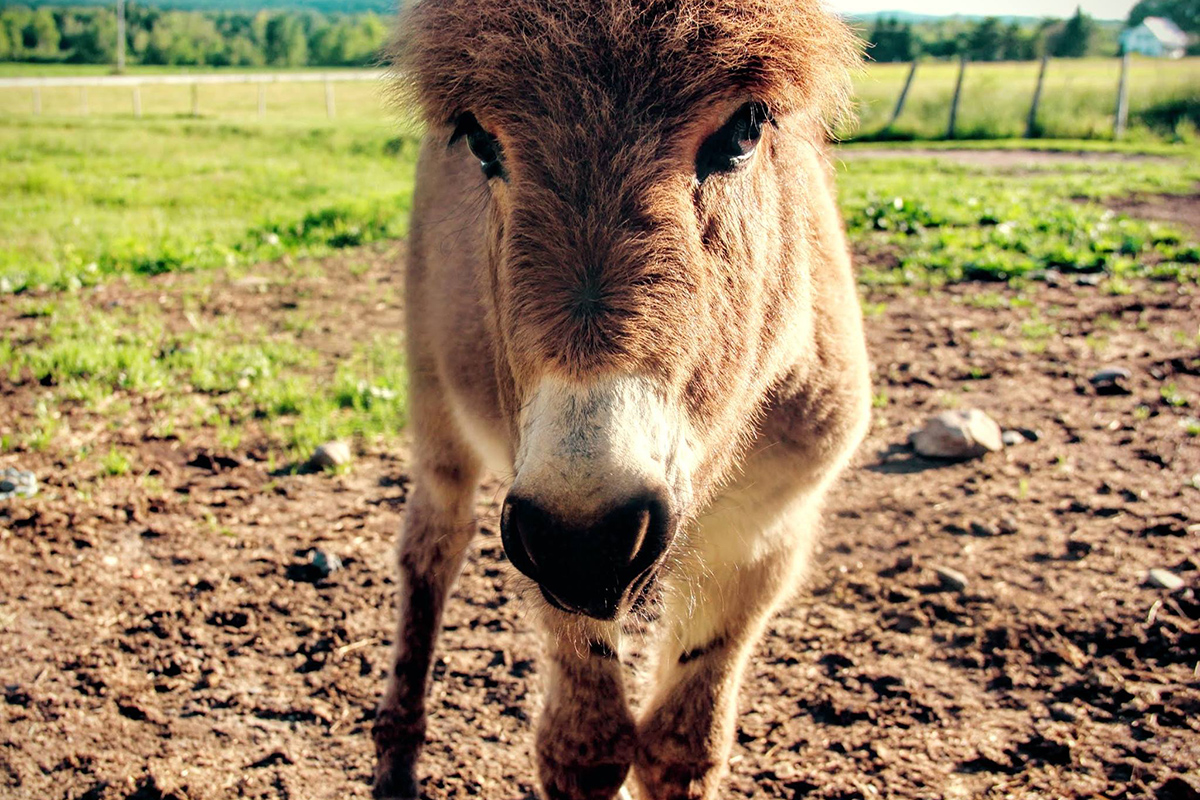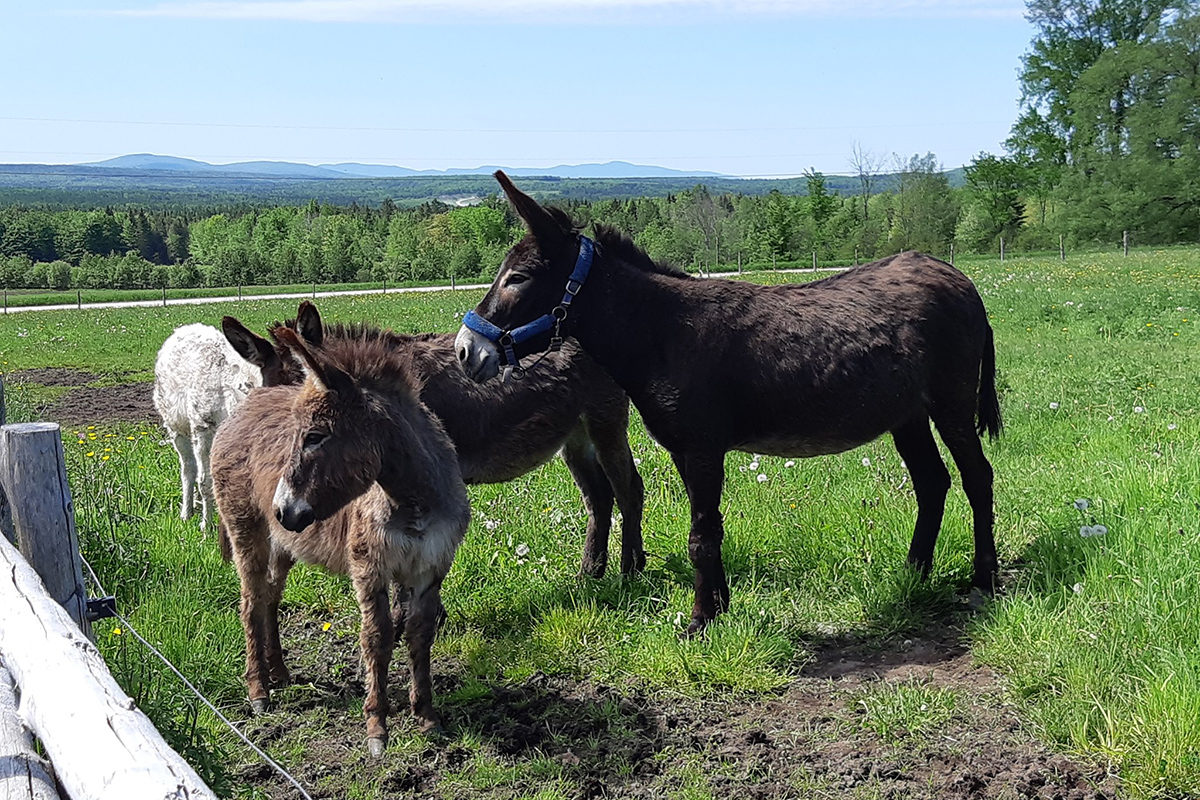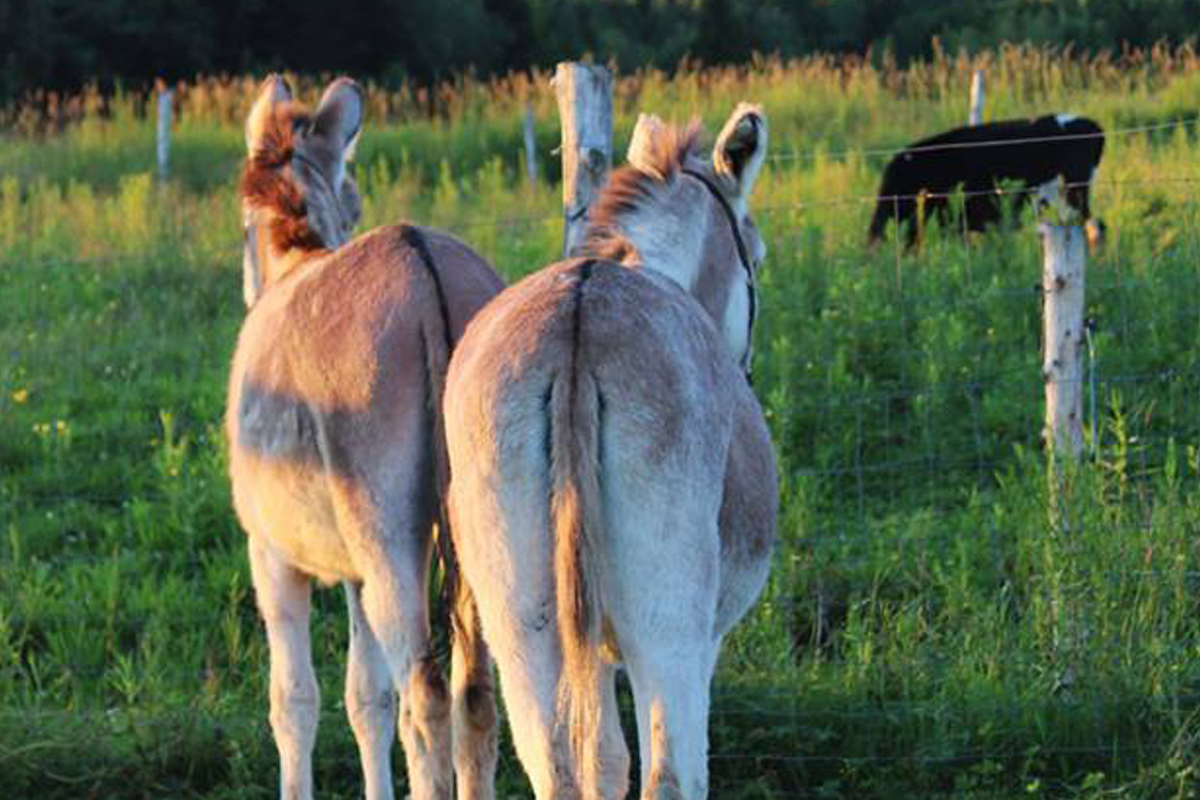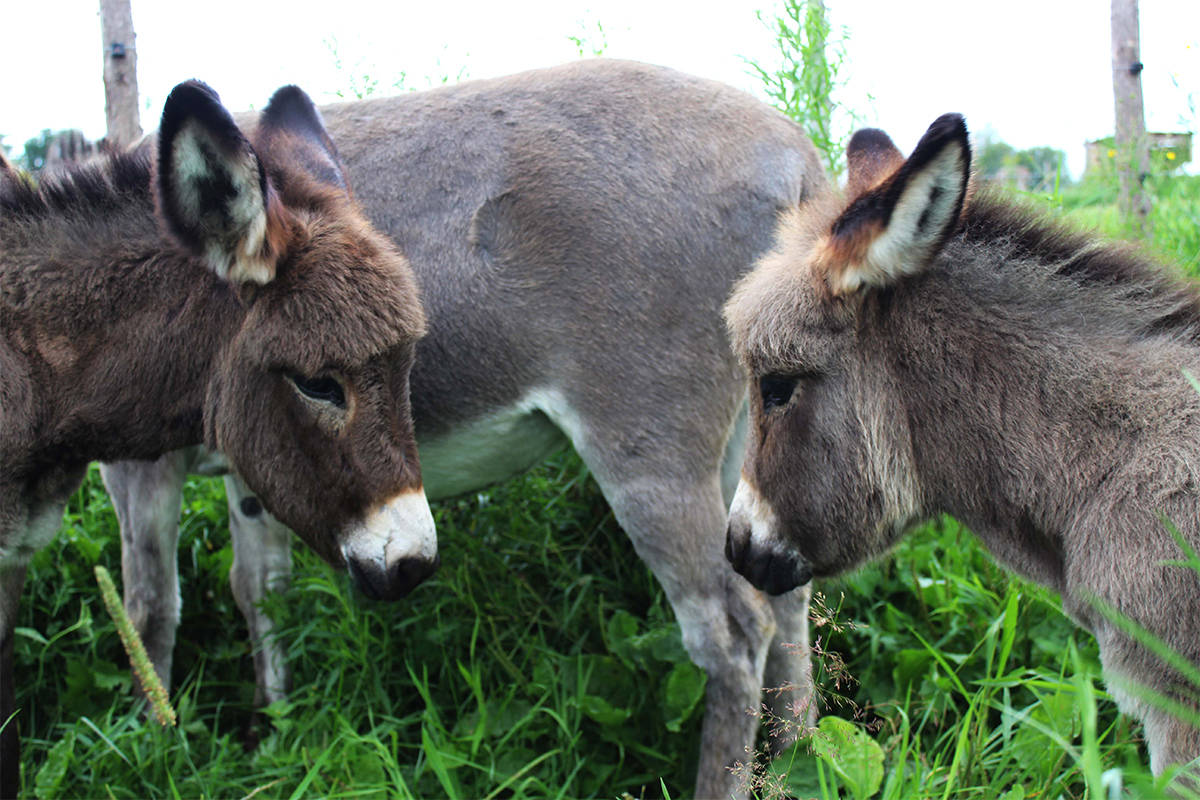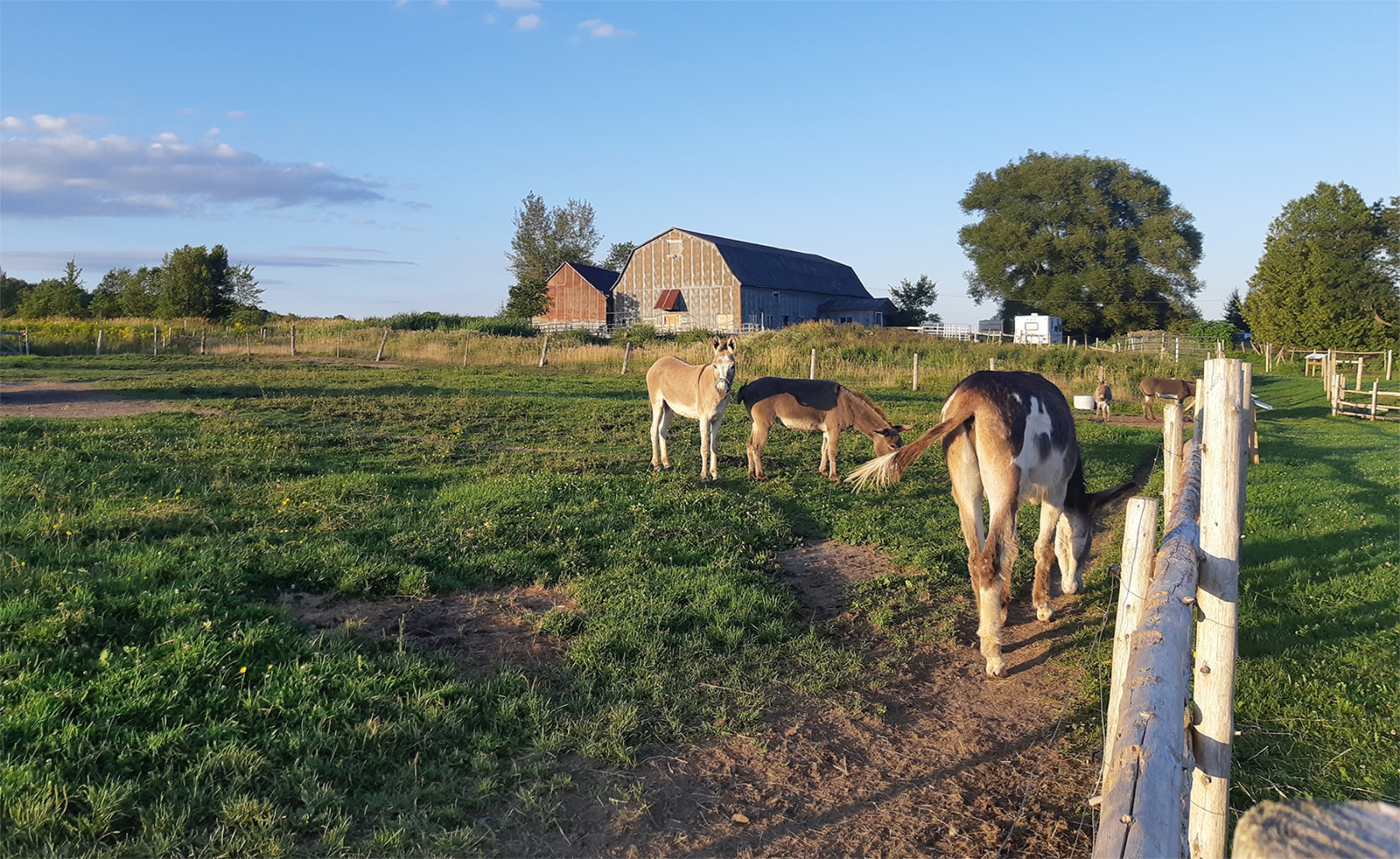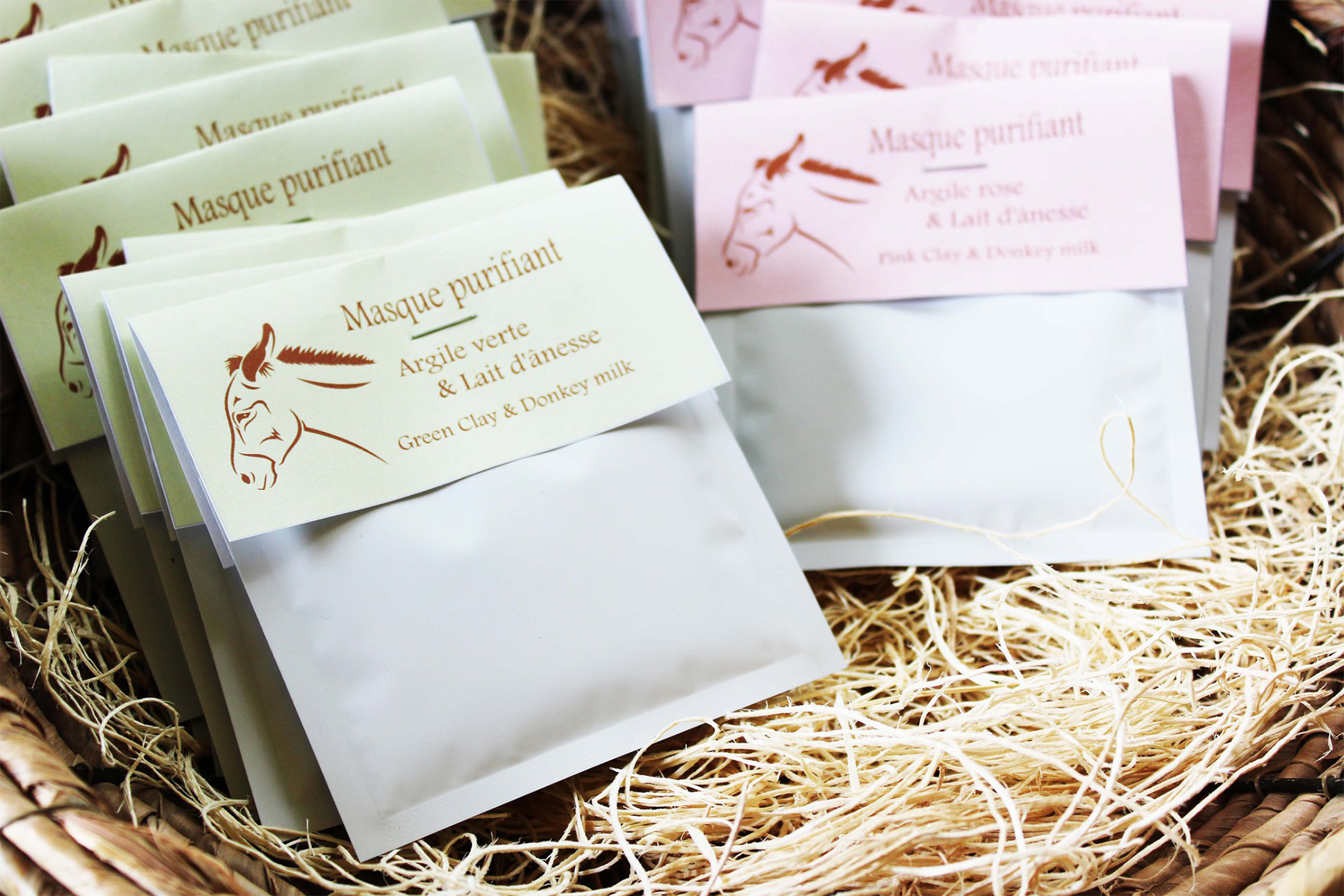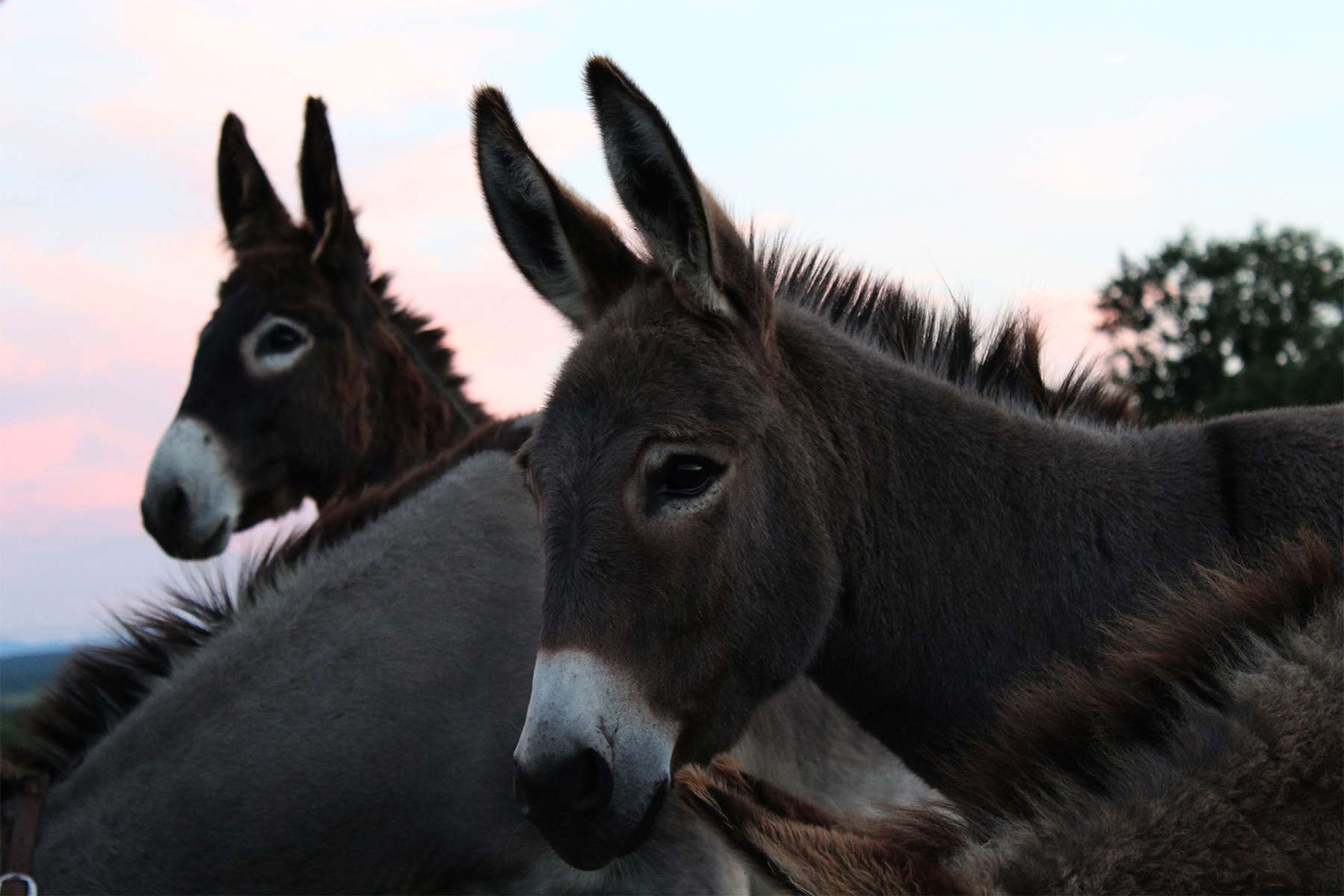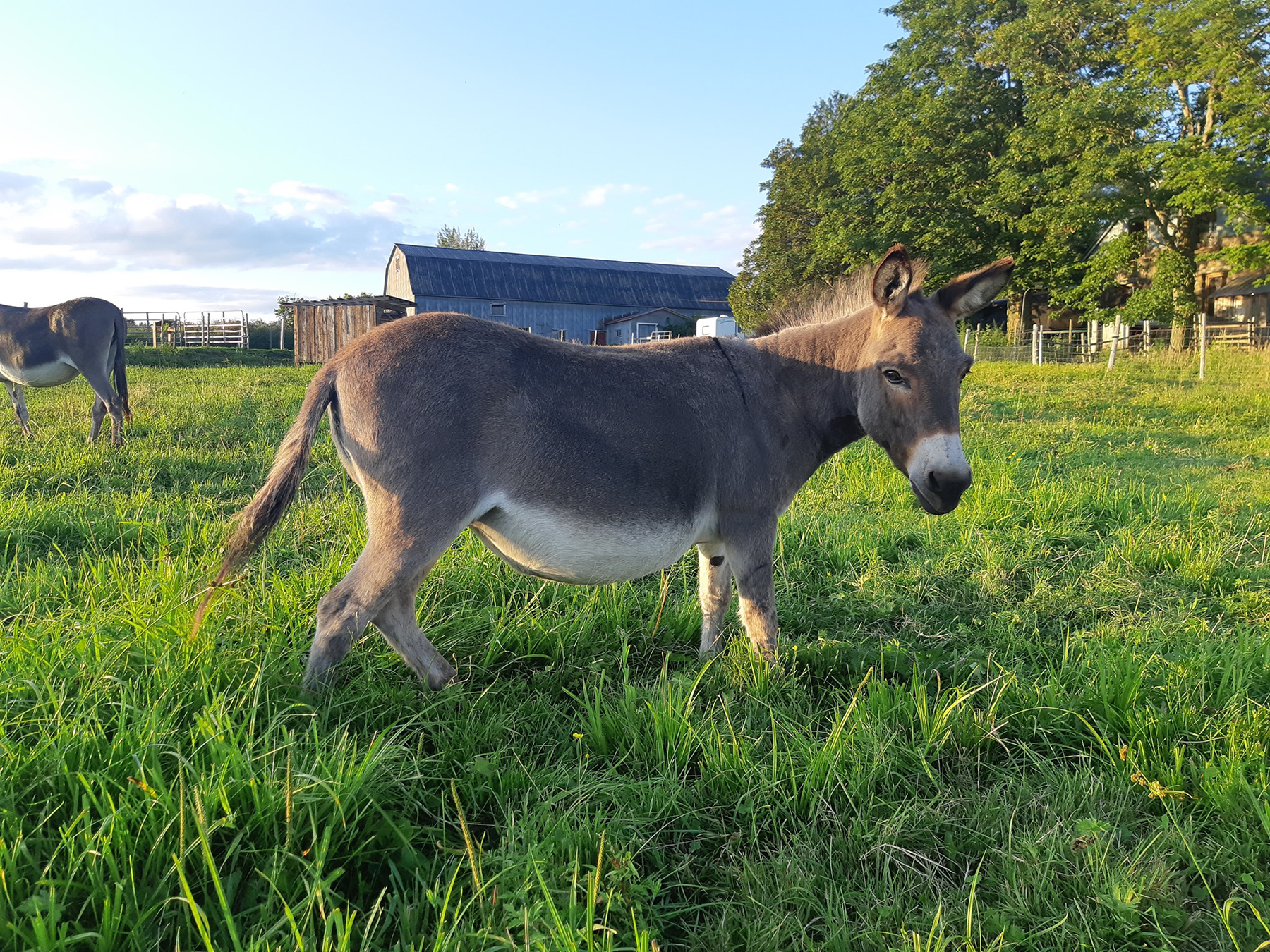-
Visit our donkey farm!
-
Soaps, creams and other cosmetics from natural ingredients
-
Welcome to the website of our family-run donkey farm
-
What is donkey milk?

Donkey milk
Like all mammals, donkeys produce milk for their young, from birth to weaning.
The mother donkey, or jennie, has been exploited for millennia as a dairy species, although this use has been forgotten in the last few decades
Jennies have the particularity of giving milk only when they are kept in contact with their foal. If the two are separated, milk production will gradually stop.
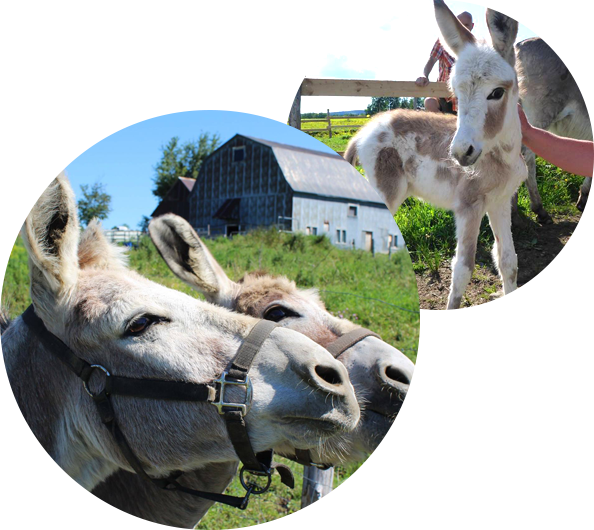
Thus, to produce milk, the mother must nurse her young throughout the milking period. In other words, the collected milk is produced in addition to the milk required for the growth of her foal.
Donkey milk has a particular composition compared to other dairy animals: on average, donkey milk contains 9.53% dry matter, 1.57% protein, 6.33% lactose, 1.16% fat and 0.4% minerals.
Donkey millk has a pH of 7 to 7.2, with an average density of 1.032.
Donkey milk is said to have a composition very similar to that of human milk, and this is exactly what one would expect given its low fat, very high lactose and low casein levels. This also justifies the growing interest in donkey milk as nourishment for infants and children with intolerances or allergies to cow milk.
